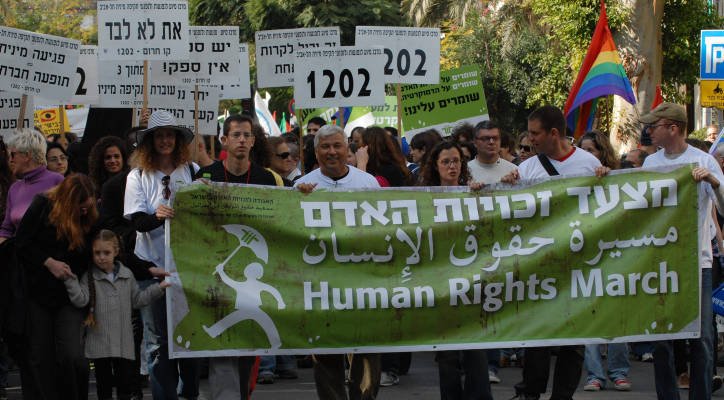By Yakir Benzion, United With Israel
The U.S. State Department this week released its annual reports on human rights around the world, with Israel one of the nearly 200 countries and territories reviewed.
Most of us simply ignore the reports as just another stack of boring government documents, but they are the most popular item on the State Department’s website, accessed by over one million people each year.
The truth of the matter is that the reports influence U.S. foreign policy, and that is a very important issue for Israel.
“The U.S. Congress passed a law over 40 years ago requiring the secretary of state to prepare these reports and transmit them to the Congress each year,” the State Department notes. “Lawmakers take the information into account in drafting legislation, approving foreign aid, and making other policy decisions.”
Those reports cover the human rights conditions in countries and regions outside the U.S. and report on individual, civil, political, and worker rights, as set forth in the Universal Declaration of Human Rights. Every country is studied, so even benignly friendly countries to America like Canada or the Bahamas are grilled on how their human rights performance.
The bottom line for Israel is right near the top of this year’s report: “The government took steps to prosecute and punish officials who committed abuses within Israel regardless of rank or seniority.”
In a nutshell, that shows the strength of Israel’s democratic tradition of law and order. The U.S. recognizes that Israel takes human rights seriously.
But the report on Israel is much, much longer and chock full of accusations of human rights abuses that make it seem like the Jewish State is a serial abuser.
That happens because by its very nature, the report is compiled from all the data the State Department receives on rights violations, whether or not the facts are confirmed. A U.S. Embassy staffer in Tel Aviv who compiled the information for the report said they look for trends in society, not necessarily individual incidents reported in the press.
While that might be true, the staffer said the authors of the State Department report often felt obligated to report on isolated incidents if they got widespread coverage in the press and appeared in the submissions received from the NGOs who sent in reports.
And who submits data for the report? All of the so-called “human rights” organizations that operate in Israel, including those with heavily anti-Israel agendas and bias, like B’Tselem, which earlier this year decided that Israel is an “apartheid” state, and Breaking the Silence, which is trying to get IDF officers charged with war crimes.
Few, if any, pro-Israel NGOs compile reports for the embassy, and the result is that the information given for the report is dominated by data from organizations that are known to actively seek out Israel’s warts and ignore the positives.
The two left-wing NGOs, which rely heavily on foreign government funding for their activities, are joined by many other organizations with anti-Israel bias, and the result is that the people who compile the reports are confronted by waves of so-called “evidence” of Israel’s alleged abuses.
In the end, even the State Department acknowledges that Israel’s success as a strong democracy that values human rights might be the cause of the negative content in the reports.
“It may seem surprising that countries with good human rights records often have long reports, but there is simply more information available because their societies are more transparent — more likely to have a free press reporting on abuse allegations, an open legal system, and active labor unions and human rights advocates,” the State Department says on its website.





